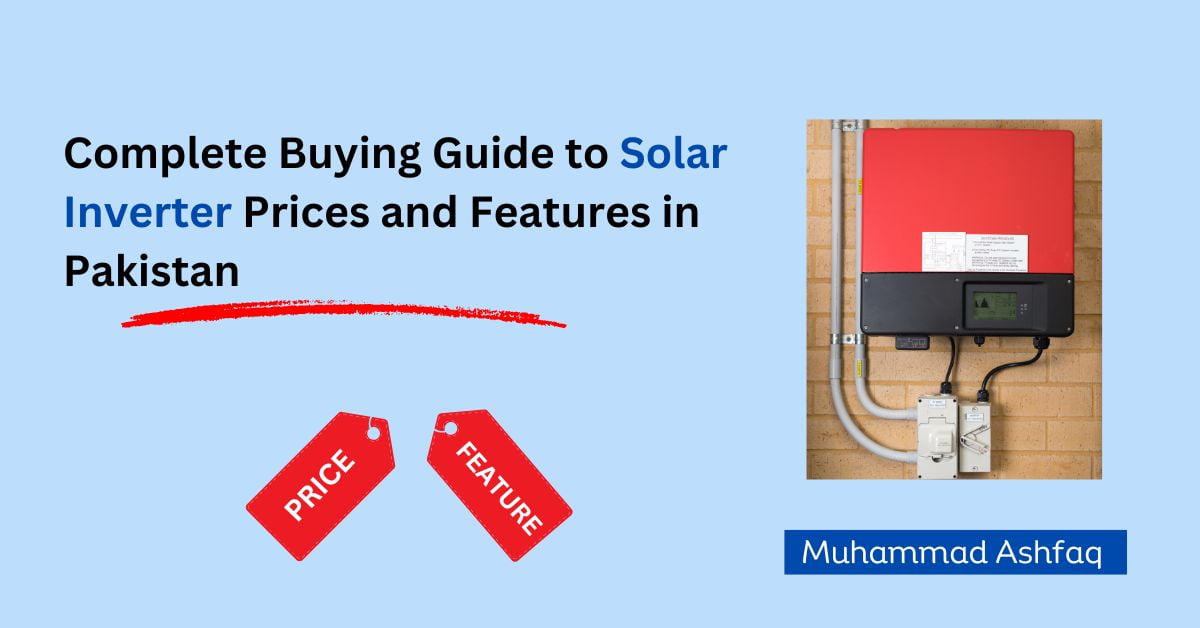Introduction

Choosing the right solar inverter is crucial for maximizing the efficiency and reliability of your solar power system.
With various options available on the market, selecting the best solar inverter for your home can be overwhelming.
This guide will help you understand the different types of solar inverters, key factors to consider, and the top solar inverters available today.
1. Understanding Solar Inverters
A solar inverter is an essential component of a solar power system that converts the DC (direct current) electricity generated by solar panels into AC (alternating current) electricity, which is used by most home appliances. The three main types of solar inverters are:
- String Inverters: Connects an entire series of solar panels in a single circuit. They are cost-effective but less efficient when shading occurs.
- Microinverters: Installed on each solar panel, providing independent operation and higher efficiency, especially in partially shaded conditions.
- Hybrid Inverters: Combine a solar inverter and battery inverter into one unit, allowing energy storage for later use, making them ideal for homes with battery backup systems.
2. Key Factors to Consider When Choosing a Solar Inverter
Before purchasing a solar inverter, consider the following factors:
- Efficiency: Higher efficiency ensures more solar power conversion, reducing electricity waste.
- Power Capacity: Ensure the inverter matches your solar panel capacity and household energy needs.
- Battery Compatibility: If you plan to add battery storage, choose an inverter that supports energy storage integration.
- Durability and Warranty: Look for inverters with long warranties (at least 10 years) and strong manufacturer reputations.
- Monitoring and Smart Features: Some inverters offer Wi-Fi connectivity and mobile apps for real-time performance monitoring.
3. Top Solar Inverters for Home Use
1. Enphase IQ8 Series (Best Microinverter)
- Type: Microinverter
- Efficiency: 97%
- Pros: Highly efficient, panel-level monitoring, great for shaded areas.
- Cons: Higher cost compared to string inverters.
2. SMA Sunny Boy Series (Best String Inverter)
- Type: String Inverter
- Efficiency: 96.5%
- Pros: Reliable, easy to install, good warranty.
- Cons: Performance drops with shading.
3. SolarEdge HD-Wave (Best Optimized String Inverter)
- Type: String Inverter with Power Optimizers
- Efficiency: 99%
- Pros: Panel-level optimization, excellent monitoring features.
- Cons: Requires additional power optimizers.
4. Tesla Powerwall Inverter (Best Hybrid Inverter)
- Type: Hybrid Inverter
- Efficiency: 97.5%
- Pros: Integrated with Tesla Powerwall, high performance.
- Cons: Limited availability.
5. Fronius Primo (Best for Durability)
- Type: String Inverter
- Efficiency: 97.8%
- Pros: High-quality build, excellent support, long lifespan.
- Cons: Higher cost than some competitors.
4. Solar Inverter Prices
The cost of a solar inverter varies based on its type, brand, and features. Here’s an estimated price range for different types of inverters:
- String Inverters: $1,000 - $2,500 (depending on capacity and brand)
- Microinverters: $150 - $300 per panel (total cost depends on the number of panels)
- Hybrid Inverters: $2,000 - $5,000 (including battery compatibility features)
While higher-end models come at a premium, they often provide better efficiency, longer warranties, and additional smart monitoring capabilities. It’s essential to balance cost with performance and long-term energy savings.
5. Conclusion
Selecting the best solar inverter for your home depends on your specific energy needs, budget, and whether you require battery storage. Microinverters and power optimizers provide superior performance in shaded environments, while string inverters offer cost-effective solutions for homes with ample sunlight. Hybrid inverters are perfect for those considering battery storage in the future.
Before making a decision, consult a professional solar installer to ensure compatibility with your solar panel system. Investing in a high-quality solar inverter will maximize your solar energy benefits and lead to long-term savings on electricity bills.